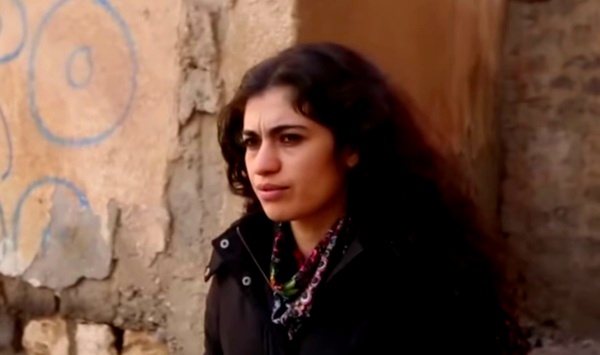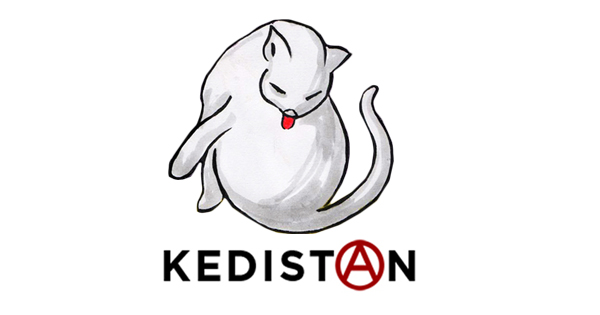Français | English | Italiano
Kurdish musician and singer Nûdem Durak is one among the regime’s hostages in Turkey, served up as an example.
In France, when we use the word “hostage”, we are expressly referring to a very somber period in the history of the 20th century, when fascism terrorized attempts at resistance by taking “hostages”, precisely “for exemplarity”. This reached a paroxysm with the Affiche Rouge (Red Poster).
In a so-called “democracy”, a sentence of imprisonment is pronounced in order to remove from society, temporarily or for a longer period, a person for, we are told, public security reasons. The sentence is individualized and pronounced by a judiciary, theoretically independent, with a sentence proportionate to the crime or offence committed and punishable by law. You are of course familiar with these basic elements of law to which a number of Constitutions refer. Accessorily, the level of the sentence is meant as a dissuasive feature, although this element of communication, dear to partisans of the death penalty, is not a element of Law. Sentencing “as an example” is not a judicial matter.
Yet in Turkey, tribunals under orders do nothing else as soon as the matter involves political opponents. The accusation accompanying these regular episodes of hostage taking usually refer to “terrorism” and to “attacks on the State’s integrity”.
Obtaining a reliable figure on the global number of political prisoners officially incarcerated in Turkey is still difficult. Even reports issued by the European Council do not draw a distinction with figures of common law convicts. This would amount to considering the accusation of “terrorism” as a political category and hence would be deemed an “intrusion”.
Organizations defending human rights in Turkey speak of several tens of thousands among some 300 000 of those incarcerated1These figures include persons condemned to long sentences in the same manner by preceding Kemalist regimes. Most of them are of Kurdish origin, the others originating from purges following the attempted coup d’Etat in July 20162. In prisons, the average is of 375 per 100 000 inhabitant, knowing that the Turkish population is of 82 million people. As a comparison, in France which sits at the mid-range in classifications, the figure (in marked increase) stands at 106 prisoners per 100 000 inhabitants.
Let’s look at journalists as an example. In early 2021, 80 journalists were in prison, 93 were awaiting judgment, 167 were considered “wanted by the judiciary”. Contrary to the practice by some specialized organizations, these figures include all those working as journalists, whether holders of the official Turkish government accreditation or not. These figures in themselves show how the regime has forced over one hundred of them into exile, how, by endlessly dragging out those trials, it condemns others to silence and social death, and how it releases or re-incarcerates others, permanently. Here again, we see the use of a policy of terror through exemplarity…
Intellectuals, politicians, journalists are behind bars, but more often than not, those arrested are simply persons aware of their rights, and having attempted to defend them in the face of a State claiming a dominant and exclusive Turcity, This may include shepherds, peasants, villagers whose native tongue targeted them as belonging to a community “that was susceptible of claiming its rights”, thus attacking the State, arrested as “accomplices to terrorism” the minute they enter into resistance.
Zehra Doğan, who spent close to three years in the gaols in Turkey for a drawing which, according to the judge “went beyond the limits of art and of criticism”, described in her “letters from prison” a certain number of her political co-detainees; women arrested and condemned for acting in resistance to Turcity. During her first incarceration, prior to her definitive trial, she was a cellblock companion of Nûdem Durak in 2016 in the Mardin prison.
Nûdem Durak is not the only artist imprisoned.
We can also mention the case of Dilan Cûdi Saruhan, another example Kedistan has brought up.
So, why Nûdem Durak, and why now?
This is a legitimate question. Why put forward this person or that other, rather than the thousands of others?
Sometimes the answer is very simple: because we know the person, because we have links with the family or close friends, because the person has made herself or himself known by specific forms of resistance, or simply through strength and talent.
This is how we were more than active in our support for Aslı Erdoğan and Zehra Doğan.
Naturally, we stand with the “Free Nûdem Durak” campaign that has carried on for over a year now, against winds, tides and…criticism. Even if our team is made up of persons from different horizons — Kurdistan, France, Turkey, Québec, Basque Country…solidarity cannot be shuttered nor does it recognize borders.
International “Free Nûdem Durak” campaign
Facebook | Twitter | Instagram | YouTube | Fundraising
Are there chances of such a campaign leading to immediate liberation?
Thinking in those terms would show a clear misunderstanding of the nature of the regime in Turkey. Equally, thinking that nothing else can be done other than a denunciation in principle, even a repeated one, means forgetting to provide support to an incarcerated person, and with her, to her co-detainees, and in doing so, countering the regime’s attempts at breaking resistance, through its policy of incarceration as an example. It also provides invaluable moral support for the person and her co-detainees.
Thus, corresponding whenever possible, allowing visits, improving daily conditions, each of these gestures is at least as useful as even the angriest denunciations on internet or elsewhere. Providing linkages between various solidarities also proves beneficial.
This is why there is need for funding at “Free Nûdem Druak”. Not for the collective itself, which is totally staffed on a volunteer basis, but in order to allow visits from close ones and family, to pursue legal recourses, to improve daily conditions in prison.
Kedistan magazine being established on a French 1901 association, has thus accepted to provide the logistics insuring transparency to the giving.
This is why we relay here their appeal for Nûdem, and invite all of those among you who can, to help at their side, along with us.
It’s our turn to provide support for Nûdem Durak, as an example!
In order to write to Nûdem :
Nûdem Durak
M Tipi Kapalı Kadın Cezaevi
Bayburt TURKEY
And to write to some of the others…
You will find a list HERE.






